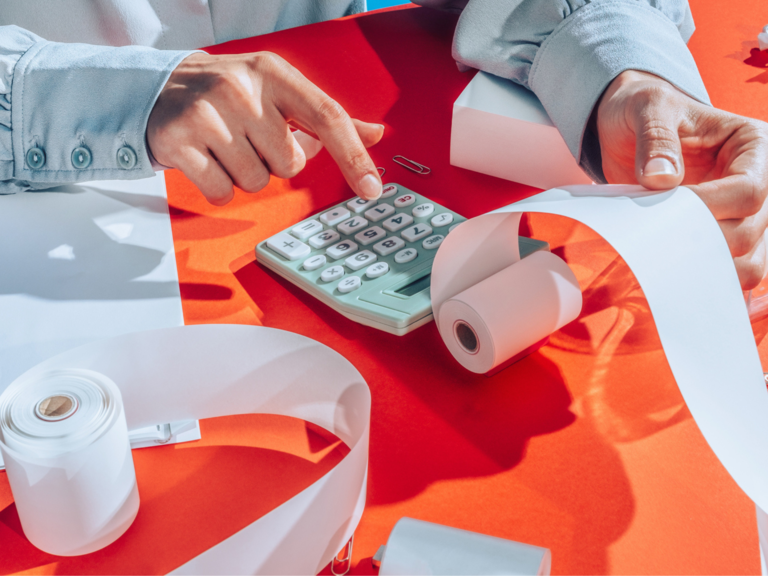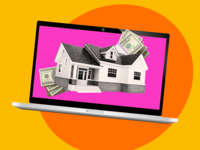How to Create a Home Buying Budget as a Couple

Knowing what to budget for buying a home is one of the harder financial questions a couple must face. A major purchase like buying your first house involves being open about your finances, determining what costs you can afford and coming up with a home-buying budget.
"When you finally make the decision to take the plunge and start attempting to purchase a home, you'll want to take a careful look at your finances to make sure you're ready for the commitment," shares Credit Karma's consumer financial advocate, Courtney Alev. "The most important first step is to get your finances in order well before you kick off the homebuying process. You want to be sure that when a mortgage lender looks at your financial standing under a microscope, you'll be likely to get approved."
Want to know the ins and outs of buying a home? Whether you're moving in together or you've been together for a while, see everything you and your partner need to know about how much to budget for buying a house.
In this article:
- What Should Be Included in a Home-Buying Budget
- How to Determine Your Home-Buying Budget
- How to Stick to Your Home-Buying Budget
What Should Be Included in a Home-Buying Budget
Budgeting for a house involves many more factors than just paying the number on the listing price. Read ahead to see the many costs you should account for in your overall budget. If you're planning your wedding and purchasing a house at the same time, use our free budget calculator to see all your expenses in one place.
Down Payment
A down payment is a sum of money put down when purchasing a home that accounts for a percentage of the overall cost of a home. The rest of the home costs are divided up in financed mortgage payments. In order to purchase a home, you will need to pay this full down payment amount. While the down payment can vary in percentage of the overall cost, the median in 2023 was 14 percent, according to the National Association of Realtors. To help with the cost of a down payment, to-be-weds often include a house fund on their wedding registry.
Closing Costs
Closing costs are expenses beyond the down payment, such as appraisal fees, attorney fees and escrow funds, that you pay on closing day. Need to estimate what you will need to pay for a home of a certain price? "Free closing costs calculators like Credit Karma's make it easy for buyers to estimate how much they can expect to pay," Alev says.
Mortgage Payments
A mortgage is a loan that is used to purchase a home or other real estate. In this agreement, you must pay monthly sums that cover the loan principal, loan interest, taxes and insurance of that agreement. A mortgage payment is similar to rent, however they will end once the entire loan is paid off.
Taxes
While you don't need to pay sales tax when purchasing a home, you will need to understand what your annual property taxes will be. These vary based on county, so make sure to do research ahead of your real estate search. You may also be eligible for tax credits.
Insurance
"It's not uncommon to forget about insurance costs until the end of the home buying process, which could find buyers in a position where they've overextended themselves financially in order to meet their monthly obligations," Alev says. "Buyers can also speak with an insurance agent and let them know their desired location and home size for a more accurate estimate."
Utilities
Alev warns that you should not overlook the cost of utilities when determining your budget for buying a house. "Especially if moving to a much larger space," she notes. "Look to estimate your potential cost and factor that into your monthly obligations."
Renovations
Purchasing a house that needs a bit of work? If you think redoing the bathrooms or upgrading kitchen appliances is essential, you should factor those costs into your budget. Also, make sure to have your home receive a proper inspection to identify any other underlying costs you will need to fix like retiling the roof or mold removal.
How to Determine Your Home-Buying Budget
When you and your partner think you're ready to start looking for a home, you should first get a better view of your budget for house buying. "To start, determine if there's a gap in cost between the home you want and the home you can afford," Alev explains. "If there's a gap, start saving aggressively. There are free tools online, like Credit Karma's Home Buying Power tool, which can help give you an idea of how much home you can afford and what your monthly payments will be. This will help illustrate how much of a down payment you'll need."
"Remember, you aren't just saving for a down payment," Alev notes. "Beyond budgeting for often-hidden costs of the home buying process including closing costs, insurance, property taxes, potential HOA fees and maintenance and repairs, ask yourself if you have done the math to figure out how much your monthly mortgage payments will cost, and will you have enough remaining cash flow leftover to stay on top of your other necessities? Are you spending a large portion of your life savings on the down payment? How is your job security? These are all things to figure out ahead of time to ensure you're not tying up all of your money into a home."
She adds, "While these can be helpful starting points, remember that just because you can afford a certain price, doesn't mean you need to spend that much, or that doing so is the right decision for you." Traditionally, many advise spending no more than 28 percent of your gross income on a mortgage.
When going into the buying process, remember that there are other potential buyers who might be able to give a higher deposit. "In today's market, prospective buyers may want to prepare to over-budget for the house they have their eyes on, as they'll likely need to pay over asking price in many housing markets," Alev says. "They should think about the highest amount they're willing (and able) to pay. The sooner you assess how much you have in the bank, and how much you'll need to buy a home in your area, the sooner you can start saving intentionally for your purchase."
Another tip for potential homebuyers? "You may also want to consider getting prequalified (which is different from getting pre-approved)," Alev advises. "If you're in the beginning stages of your home buying journey and just want to determine your budget, getting prequalified will give you an estimate of what size mortgage you'll be approved for and won't result in a hard inquiry on your credit report."
How to Stick to Your Home-Buying Budget
Whether you're preparing to buy a home or are keeping up with your mortgage, it's important to make sure you will be able to stick to your budget. See a few tips to help you stay on track.
Look at Your Spending
Once you have your home-buying budget in place, you should evaluate what you are spending on a monthly and yearly basis with your partner. If these costs exceed your budget, find ways to adjust your lifestyle to make up for those differences. Budget apps are also helpful when managing your finances.
Account for Repairs
Factoring in a place in your budget for eventual home repairs that may pop up like a sprung leak or failing appliance can help you in the long run when those disasters occur. If a repair is needed as you are paying off your mortgage, think about readjusting your overall budget and expenses to make sure it will be paid in a timely manner.
Track Progress and Adjust for Changed Income
If you and your partner's income or expenses change over the years, your budget will also be able to adjust. Think of your budget like a working document that you can reevaluate at major life moments like having a baby or getting a promotion.























